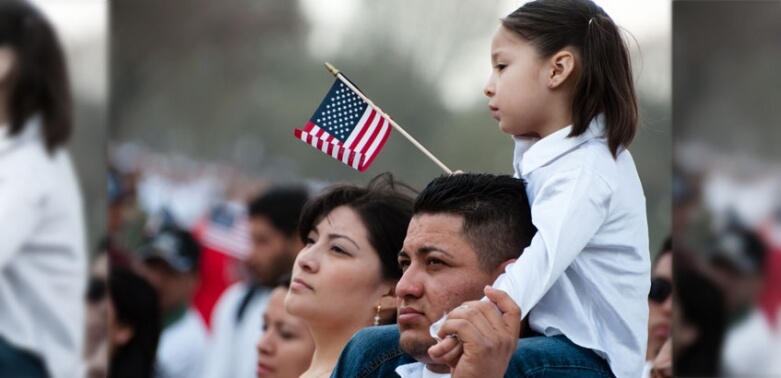For Some Families Fleeing Violence, a Shot at a Fair Shake
Page Media

When I met Milagro* and her two toddlers just a few months ago, they were locked up in a makeshift federal detention facility in the desert of Artesia, New Mexico, awaiting imminent deportation to Honduras – a near certain death sentence in light of the extreme violence they would face there.
But now she and her children have hope.
After hearing Milagro's story – and many others like it – the ACLU and its partners filed a lawsuit in August that challenged and exposed the cruel deportation polices at the Artesia Family Residential Center, which prioritized speed over fairness. Five months later, the detention facility is closed, and Milagro and her little ones have been released from detention after an immigration judge granted their application for asylum.
This is a victory for immigrants' rights because the story Milagro recounted to me is typical of the families detained at Artesia. She fled Honduras after her partner was brutally stabbed to death by men associated with the MS-13 gang.
She continued to see her partner's killers in the street, and each time they made threats to kill her and her children too. When I asked her if she could have gone to the police for help, Milagro fought back tears as she explained that the police themselves are known to fear this group.
"They are indiscriminate in who they kill," she said to me. "They kill children on the street just for crossing the path in front of them."
Milagro was arrested in Texas soon after completing the 1,600 mile journey from Central America. She was woken up one morning at 5 a.m. for her interview with an asylum officer. She did not understand the purpose of the interview or that her chances of obtaining asylum greatly depended on it. And because she was not provided with any child care, Milagro had to undergo this critical interview with her two toddlers climbing all over her. She told me that she didn't want to talk about her fear in front of her children, and she worried that talking about their father's murder would force them to relive the very nightmare they were trying to escape.
Shortly after her interview, Milagro appeared in front of a judge via web cam without an attorney. Unable to fully explain the reasons she was afraid to be sent back to Honduras, the immigration judge affirmed her deportation order.
We intervened to stop the federal government from violating the due process rights of Milagro's family and many families like hers. All 10 of the Central American women and children who courageously came forward to be plaintiffs in our lawsuit experienced severe violence, yet the government rushed to deport them all. With the help of incredible volunteer lawyers, each of our plaintiffs has received a new interview with an asylum officer. More importantly each plaintiff family has had their deportation order lifted, been released from detention, and is in regular immigration proceedings where, like Milagro, they will have a fair chance to make their asylum claims. Because of these developments, today we voluntarily withdrew our lawsuit, after bringing to light Artesia's unfair deportation practices.
All, however, is still not well.
While the government has closed Artesia, it is still rushing to deport and detain mothers and children who are seeking asylum, and it has opened other family detention centers for this purpose. The ACLU continues to fight these policies, including in our case challenging the government's policy of denying release even to families that have been found to have credible fears of persecution in their home countries.
And for Milagro and her toddlers, the fight continues as well: The government has inexplicably decided to appeal the immigration judge's decision to grant them asylum, and they face yet another uphill battle for a better life.
*Milagro is a pseudonym to protect our client's identity. She is referred to as M.R.R. in the complaint.
Daniel Galindo works with the ACLU Immigrants' Rights Project.
Source: ACLU Blog of Rights
